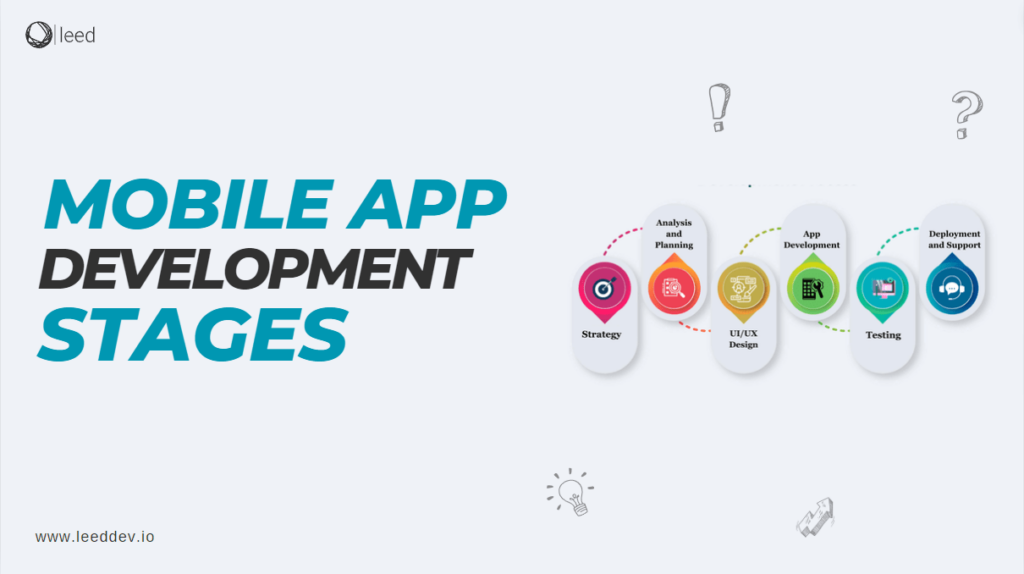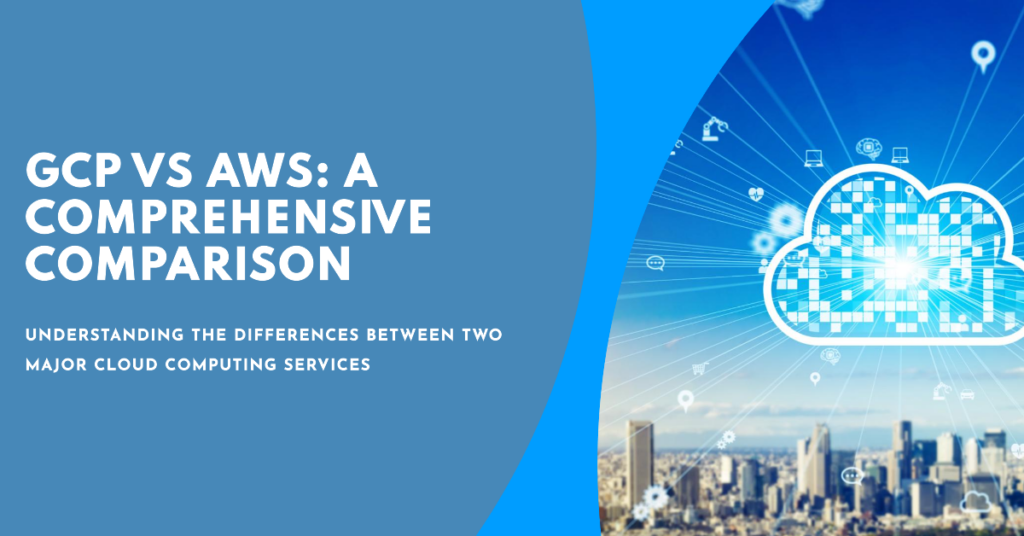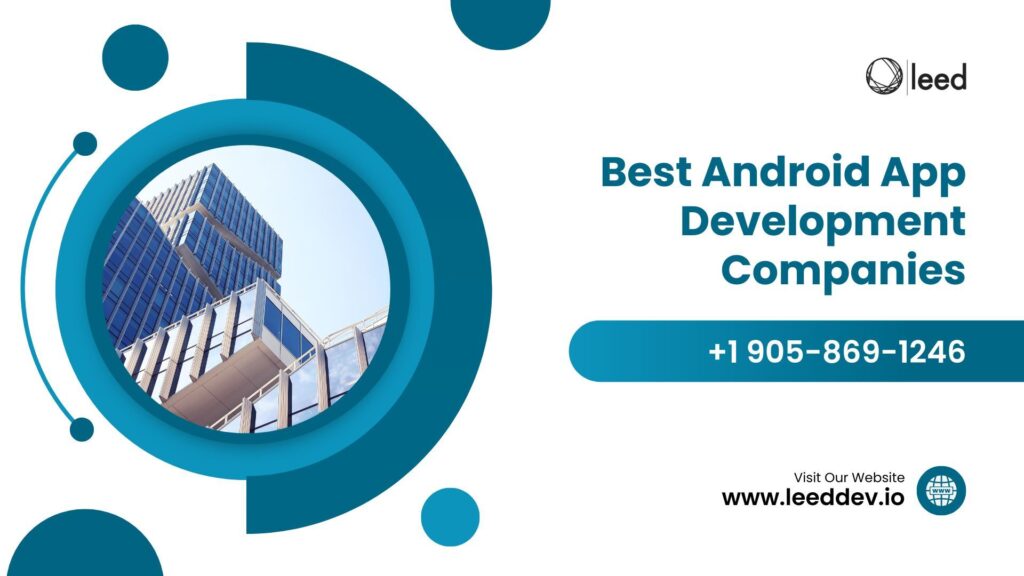Ever wondered how a great app is created from an idea? Apps have become essential for every business, enhancing operations, supporting marketing strategies and increasing customer retention. With global mobile app downloads reaching 257 billion in 2023 and projected revenues of over $613 billion by 2025, developing a successful app requires understanding these principles. The app development process is influenced by various factors, including specific requirements, project size, developer expertise, future changes, and deadlines. While there’s no single correct approach, development teams typically follow common stages. Let’s discuss the main mobile app development stages in this article.
What Is Mobile App Development Lifecycle?
Starting the blog let’s discuss what app development procedure is. The app development lifecycle is a structured process which involves planning, creating, testing, deploying & maintaining apps. This helps mobile app developers create high-quality apps
Over the past decade mobile app development process has become more streamlined. While each app is unique, there are general stages common to all mobile app development projects. Moreover, Mobile app development stages can vary based on trends, specific requirements, business type and client needs. This ensures that apps meet expectations and provide a superior user experience. however, we will discuss the main stages of app development
7 Mobile App Development Stages
Coming to the main part following are the stages of app development. Continue reading the blog to know further details.
Research & Idea
Every mobile app development process starts with an idea. But turning that idea into a successful, launched app requires careful planning. Moreover, your app should solve real-life problems. To get started, consider these questions:
- What is the goal of your app?
- Who will be using it?
- What unique features will it have?
- How will you allocate your resources?
- Who are your competitors and what features do their apps have?
- When do you want your app ready?
- How will you promote it to your target audience?
- How will you ensure it works well and stays updated?
Answering these will allow you to move to the next steps in the development process.
Planning
After answering key questions about your app idea, it’s time to analyze the market and plan your strategy. In mobile app creation phases planning is a crucial step. In addition app development planning is crucial for determining your app’s viability and gaining insights for future development.
Market Analysis
- Conduct surveys, group interviews, desk research, or focus groups.
- Engage with potential users to understand their needs, desirable app features, and awareness of competitor apps.
- Research competitors’ apps, their key features, and current market trends to identify opportunities.
Strategy Planning
- Set SMART goals which are specific, measurable, achievable as well as realistic
- Choose a name for your app & define its functionality.
- Also allocate budget, time and resources effectively
- Develop strategies for marketing, customer support, and regular app updates.
Designing
During the designing phase of app development, planning and creativity converge to shape the user experience and interface. Moreover, designers collaborate closely with developers to translate ideas into wireframes, prototypes, and visual designs that align with user needs and business objectives.
This phase also focuses on crafting intuitive navigation, interactive elements, and visual aesthetics that enhance usability and engagement. Iterative feedback loops refine the design, ensuring it meets technical requirements and resonates with target users. Ultimately, the design phase sets the foundation for a compelling and user-friendly app that delivers value seamlessly.
Development
Next step in mobile app development stages is development approach. Firstly decide whether to hire in-house team, a mobile app development company, or freelancers, especially if you’re a startup. In addition, to find a reliable development company, seek recommendations, search online, or attend conferences.
A typical app development team consists of 3-9 members, including a project manager, sales manager, scrum master, developers, designers, and QA engineers. The exact number depends on your project’s scope.
When considering a development company, review their experience and skills, request a custom solution, and discuss costs and post-launch support before hiring. Also, Leed Software development is one of your best options if you want to hire a development company.
Now, time to focus on the app development stage. For developing an app choosing the right technology stack is crucial for your app’s performance and scalability. Different programming languages are also used in this phase. Development includes three main parts:
- Backend: Server-side objects and databases support your app’s scalability and performance. Modify existing backend platforms if needed.
- API: An API (Application Programming Interface) enables communication between the backend server, the app, and OS components.
- Mobile App Frontend: Everything users see and interact with. Mobile App developers built it using HTML, CSS, and JavaScript.
Creating an MVP
Creating a Minimum Viable Product is a smart approach. MVP includes only the essential functions of your app, ensuring they work perfectly. This also helps maintain focus on core functionalities and allows for user feedback before adding more features, ensuring the app meets customer needs effectively.
Testing
Now the next in Mobile App Development Stages is the testing phase. Continuous testing ensures all app components work correctly and interact well. Starting after the app is built or coded, testing identifies and fixes defects, deficiencies and risks. A new app version is released only when all validated defects are resolved.
Testing also ensures apps meet original requirements, preventing the release of low-quality products. It verifies code reliability, reducing bugs and increasing user satisfaction.
Some of the main types of testing done are as follows:
- Functional testing
- Performance testing
- UI testing
- Usability testing
- Compatibility testing
- Security testing
Deployment
After testing your mobile app is ready to launch. Make your app available on the Apple App Store or Google Play Store. However, this process requires metadata, including the title, description, category, keywords, launch icon and app store screenshots.
Once submitted, your app will undergo a review process which varies by app store and may take a few days to complete.
Monitoring & Maintenance
After deployment mobile app development stages involve another last step which is monitoring and maintenance. Before the final release, monitor your app’s performance to prevent crashes and fix bugs.
Also, constantly monitor feedback to identify areas for improvement. Regularly update your app to stay competitive. In addition, ensure you have a team responsible for fixing bugs and adding features based on user feedback post-launch.
9 Advantages Of Mobile App Development
| Advantages | Description |
| Enhanced Customer Engagement | Allows direct interaction with users, enhancing engagement. |
| Improved Accessibility | Provides easy access to information and services anytime, anywhere. |
| Increased Brand Visibility | Help increase brand visibility and recognition among users. |
| Competitive Advantage | Also gives businesses a competitive edge in the market. |
| Better Customer Service | Enable faster and more efficient customer support and service delivery. |
| Enhanced Marketing Opportunities | Offer new channels for targeted marketing and promotional campaigns. |
| Data Collection and Analysis | Gather valuable user data for analysis and informed decision-making. |
| Revenue Generation | Generate revenue through sales, subscriptions, or advertising. |
| Scalability and Growth | Apps can scale as business needs grow, accommodating more users and features. |
Final Words
Summarizing it, Mobile app development stages involve planning, development, testing, deployment, and ongoing maintenance. Starting with an idea and thorough market analysis, it progresses through strategic planning and the selection of a development approach. Creating a Minimum Viable Product (MVP), rigorous testing, and deploying the app on major platforms are critical steps. In addition post-launch, continuous monitoring, customer feedback analysis, and regular updates ensure the app remains competitive and meets user expectations. Moreover this comprehensive approach is essential for developing successful apps in today’s competitive market. Also if you are looking for one of the best development companies for a smooth App development workflow, Leed Software Development is your go to option.
FAQs
What is the mobile app development lifecycle?
The mobile app development lifecycle includes planning, development, testing, deployment, and maintenance stages. Each stage is crucial for creating a successful app.
What are the main mobile app development stages?
The main mobile app development stages are:
- Research & Idea
- Planning
- Development Approach
- Development
- Testing
- Deployment
- Monitoring & Maintenance
Why is market analysis important in app development?
Market analysis helps understand user needs, competitor apps, and market trends. It ensures your app meets expectations and stands out in the competitive market.
What is a Minimum Viable Product (MVP)?
An MVP includes essential app features to validate the idea with early users. It allows for iterative improvements based on user feedback.
How important is continuous testing in app development?
Continuous testing ensures app components work well together and meet quality standards. It helps prevent bugs and ensures a smooth user experience.
What happens after app deployment?
Post-deployment, monitoring app performance, gathering customer feedback, and regular updates are crucial. These activities help maintain app quality and user satisfaction.




